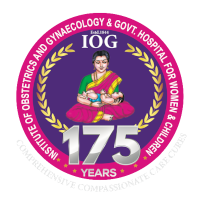Hypertension is the most common medical complication in pregnancy. On every antenatal visit we will check your Bp to diagnose hypertension and to start treatment with anti-hypertensives as early as possible to prevent complications.
- When your Bp is more than 140/90 on two occasions or more than 30 mmHg from systolic pressure or more than 15 mmHg from diastolic pressure we will start with anti-hypertensives and you will be closely monitored for optimal Bp control.
- Please discuss with your doctor whether you had high Bp before pregnancy or in your previous pregnancy.
- When you are diagnosed with Bp we will recommend you to take few blood tests to look for the normal function of your vital organs.
- We will take a consultation from an ophthalmologist to examine your eyes for any abnormality arise because of high Bp.
- We will advise you to look for any danger signs like headache, blurring of vision, epigastric / abdomen pain , vomiting and decreased urine output. If you have any of these above symptoms report to hospital immediately.
- High protein diet is recommended- try to consume 2 eggs , Sundal, fish, chicken and food rich in protein with your preferences.
- Monitoring fetal movements is also prime important.
- You may need a frequent scans to monitor your fetal growth and liquor status. We may recommend you to do Doppler study for foetus to check for good blood flow to the fetus. It may get impaired due to high BP which is a usual complication encountered.
- If your BP is not under control or if you have any above warning symptoms we may admit you and can be planned for delivery as only delivery of the fetus will be the only solution to control your BP.
- Low dose aspirin 75 - 150 mg/ day is recommended for prevention of preeclampsia in high risk women.
- Women with gestational hypertension should be delivered by 38-39 wks gestation, depending on the BP. Your doctor will discuss about the date of admission prior in advance.
- Expectant management is preferred when women is between 28-34 wks. This consists of close monitoring of maternal and fetal well being, anti hypertensives, corticosteroids for lung maturity and magnesium sulphate and delivery at 34 wks or earlier if there is maternal or fetal compromise.
- When the BP is not under control along with warning symptoms there may be a chance for eclampsia which needs immediate intervention in intensive care unit.
- Management of eclampsia is by general supportive therapy, magnesium sulphate for control of seizures, anti hypertensives and immediate delivery.
